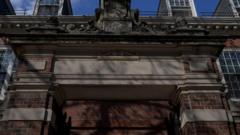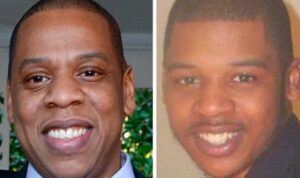Harvard University successfully obtained a temporary restraining order from a federal judge against the Trump administration's plan to revoke its ability to enroll international students, citing violations of law and free speech. The dispute has raised concerns among students, faculty, and the financial implications for the university.
Judge Halts Trump's Plan Against Harvard's Enrollment of Foreign Students

Judge Halts Trump's Plan Against Harvard's Enrollment of Foreign Students
A federal judge intervenes in the escalating dispute between the Trump administration and Harvard University over the enrollment of international students.
A federal judge has temporarily blocked the Trump administration's initiative to revoke Harvard University's ability to enroll foreign students. This legal intervention follows the university's lawsuit, which argues that the government's recent decision constitutes an infringement on both legal rights and free speech. Harvard claims the administration's action, framed as retaliation for the university's alleged insufficient response to antisemitism, is an unconstitutional overreach.
The dispute escalated rapidly after the Department of Homeland Security's announcement on Thursday that it planned to strip Harvard's access to the Student and Exchange Visitor Program (SEVP), a key database managing foreign students. The judge's ruling by U.S. District Judge Allison Burroughs halts these revocation attempts, with the next court hearing scheduled for May 29 in Boston.
In its lawsuit, Harvard stated, "With the stroke of a pen, the government has sought to erase a quarter of Harvard's student body, international students who contribute significantly to the University and its mission." Harvard President Alan Garber condemned the government's actions as "unlawful" in a written statement.
In response, the White House's deputy press secretary, Abigail Jackson, criticized the judge's ruling as a manifestation of a "liberal agenda." She stated, "These unelected judges have no right to stop the Trump Administration from exercising their rightful control over immigration policy and national security."
As graduation approaches, many foreign students at Harvard face heightened uncertainty regarding their futures. Cormac Savage, a political science and languages major from Northern Ireland, expressed concern that his legal status in the U.S. could jeopardize not only his upcoming graduation but also future job opportunities.
There are around 6,800 international students enrolled at Harvard, making up over 27% of the total student body. Many of these students come from countries like China, Canada, and the UK. The financial impact of losing foreign students could be significant for Harvard; international students typically pay full tuition, which helps subsidize the costs for American attendees.
Isaac Bangura, a student from Sierra Leone, shared the emotional toll of the uncertainty, expressing concerns for his family's future as they contemplate possible deportation due to changing immigration policies.
The case forms part of a broader tension between the Trump administration and elite universities, with the White House accusing them of failing to address issues such as antisemitism and not upholding conservative viewpoints. President Trump has indicated that he may pursue further action against Harvard and other institutions in the future, including financial penalties.
Legal experts suggest that while lower courts in Massachusetts have historically ruled against the administration, the complexities of this case may pose challenges if it reaches the Supreme Court. As Harvard continues to protest against the government's intervention, students, faculty, and administrators alike grapple with the implications of these developments on academic freedom and student welfare.





















